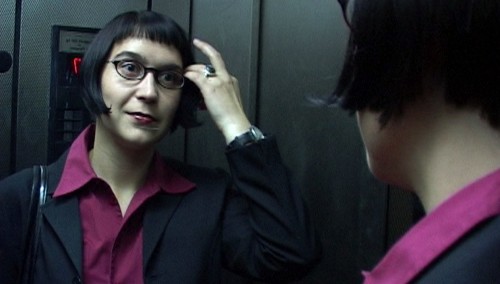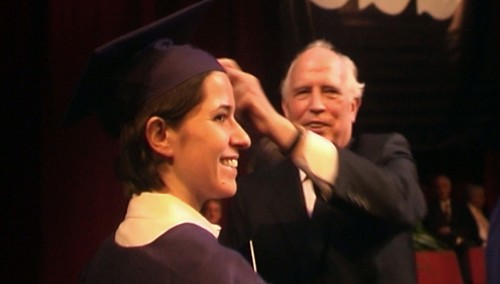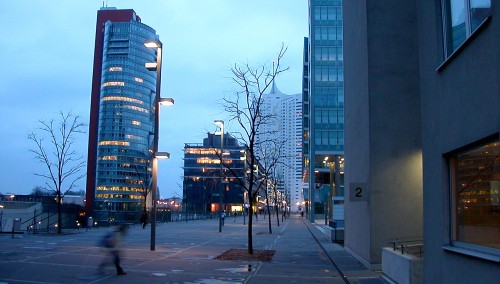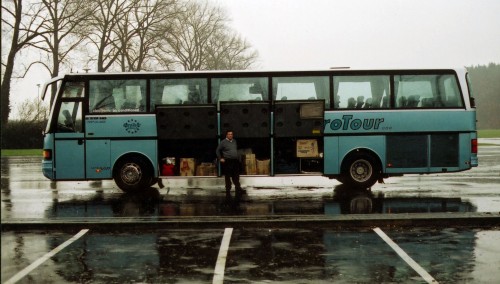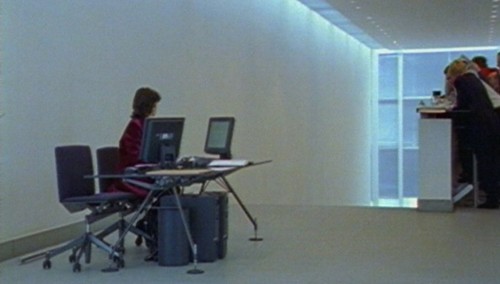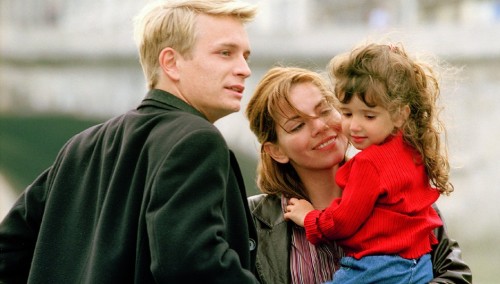Working Worlds 2004
How do contemporary working circumstances - usually subsumed under keywords like neoliberalism or New Economy - affect individuals and society? This question forms the general social background for the series Arbeitswelten (Working Worlds) devoted to recent documentary films and videos from Europe. Examples are presented in four film programs of the way in which new working practices, often characterized as precarious or atypical, show up in documentary films.
These job models are closely related to the selfunderstanding of the people portrayed in the films. They permeate the language and gestures and evince consequences for the political and social thinking of the protagonists. When the effect of competition and self-discipline reaches all the way into seating posture, work and leisure can hardly be distinguished from one another; flexibility, mobility, creativity and inventiveness - as demanded by the New Economy - turn the employee into a survival artist, a manager on their own behalf, a Me Inc.
“There’s no such thing as society - merely individuals,” stated Margaret Thatcher in the eighties. The films in our programs tend to contradict this conception of the New Economy as an individualizing machine. Even though single films are oriented to individuals and their life plans, they still always tell of relationships, the relations that the individual maintains with their environment. Even the lone warriors of postfordism operate in competition with others (even if it is their own “inner laziness”); they work in functional spaces, traverse certain paths, have a family, friends or competitors. Arbeitswelten allows a filmic glimpse into these worlds of life.
The program focuses on productions from the last two years, five documentary films juxtaposed with one feature film. During the selection process, we noticed that a number of works come from a field affiliated with television. This phenomenon, which is to be addressed in the course of a discussion, naturally also has an effect on the aesthetic approach: the films are not dominated by questions and observations pertaining to duration and insistence, but rather by short-term investigations that are generally closer to a feature-like approach.
Two films are from the series “Absolute Beginners - Der erste Job” (“Absolute Beginners - The First Job”), which was initiated by ZDF in 2003 in conjunction with the “Kleines Fernsehspiel” (“Small Television Play”): in DUNKLER LIPPENSTIFT MACHT SERIÖSER (DARK LIPSTICK MAKES YOU LOOK MORE SERIOUS), Katrin Rohte accompanies two women academics in search of employment, whereby the job interviews are recounted by the protagonists and replayed by Rohte as animated scenes. The film primarily deals with the reflections that the process of seeking employment necessitates, thus contributing to a heightened self-awareness: What is the right way to behave? How can I make the best impression? Or: How should I react to standardized interviews?
To a certain extent, Rothe assumes the role of an accomplice here, whereas Marc Bauder endeavors to distance himself from his business management studies in GROW OR GO - DIE ARCHITEKTEN DES GLOBAL VILLAGE (GROW OR GO - THE ARCHITECTS OF THE GLOBAL VILLAGE). In this film as well, it is no longer a question of the right job, but rather of how to adapt to the demands of the job as a young (and well paid) management consultant. Yet it can also be observed in GROW OR GO how work contributes to the constitution of subjectivity, when the protagonists carry out their activities without really questioning what they are doing - and even private life is oriented to the specifications of corporate identity
This is complemented by the short film SITZEND ÜBERLEBEN (SURVIVING SEATED) by Caroline Schmitz, which moves away from the people towards the interior architecture of companies. Work is defined here primarily by the space as lifestyle; trendy interiors reinforce the consciousness of doing the right job and allow the worker to become part of an exquisite culture, in which truly individual needs no longer play much of a role.
As a kind of corrective or comparison, we selected Jean- Marc Moutout’s feature film VIOLENCE DES ÉCHANGES EN MILIEU TEMPÉRÉ, because it transfers the problems, those of the documentary film, to a morally tinged plot, thus adding a psychological facet to them: a young consultant is charged with rationalizing a run-down company and ends up in a conflict of conscience in the process. “Work hard, play hard” is the motto here, which this figure seems not to have internalized yet to the same extent as his colleagues from the documentary film, who know how to rationalize economization measures with set phrases.
A different kind of corrective is represented by two titles devoted to the working and living conditions of labor migrants: Karin Macher’s PEREGRINA/GUTE ARBEIT tells of the high degree of self-responsibility, flexibility and adaptability demanded especially of young women doing seasonal work in Austria. For low wages, of course. Here too, it is “unbounded” models of work that determine everyday life in terms of both time and social regulations, oscillating between the dream of a more secure foundation for the family and a possible return to the home country. The extent to which working abroad - specifically in the automobile factories of German industry - have influenced the identity and self-understanding of “guest workers” is gently shown in Andreas Pichler’s MIRABELLA/SINDELFINGEN. Three generations of Sicilian workers meanwhile live and work in Sindelfingen near Stuttgart, still travelling back and forth to their hometown of Mirabella every year: they try not to allow the gap between the different worlds of living, between the traditional image of the family and their work to become too large.

